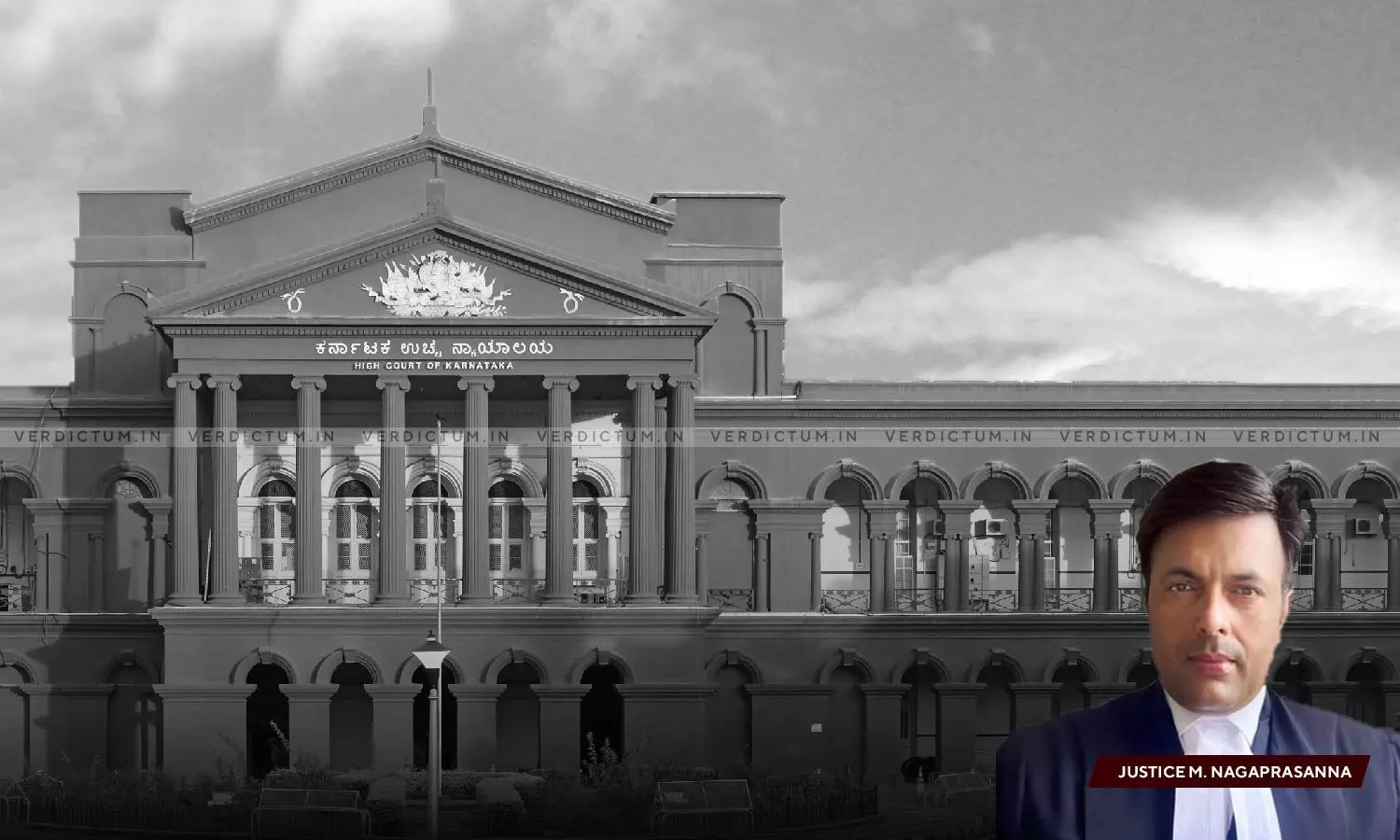
Justice M. Nagaprasanna, Karnataka High Court
Defaming Indefinite Class Not Offence U/S 499 IPC: Karnataka HC Quashes Case Against Man Accused Of Hurting Sentiments Of Hindus
 |
|The Karnataka High Court quashed the Defamation proceedings against a man who was accused of hurting sentiments of Hindus.
The Court was dealing with a Criminal Petition filed against the Order of the Additional Chief Judicial Magistrate (ACJM), taking cognizance for the offences punishable under Sections 153 and 500 of the Indian Penal Code (IPC).
A Single Bench of Justice M. Nagaprasanna observed, “… this is a case where not a definite class of people is alleged to be defamed but an indefinite class. The very concept of defaming an indefinite class cannot lead to the offence punishable under Section 500 of the IPC, as the purport of Section 499 and the Explanation is that it should be against a definite class of people.”
Advocate B.S. Sreenivas appeared on behalf of the Petitioner/accused while Advocate Dharmapal appeared on behalf of the Respondent/Complainant.
Factual Background -
The Respondent/Complainant registered a private Complaint invoking Section 200 of the Criminal Procedure Code (CrPC), alleging that the Petitioner/accused has hurt the sentiments of Hindus as he has made a statement that the word “Hindu” has a dirty meaning. After the said statement, the Complainant claimed to have been hurt deeply, and hence, sought to register a private Complaint for defamation/offence punishable under Sections 499 and 500 of IPC.
Cognizance was not taken by the Magistrate before whom the case was presented. Thereafter, the Complainant knocked the doors of the Sessions Court by filing a Criminal Revision Petition. The said Court by a detailed Order, directed taking cognizance for the said offence against the accused. Calling in question these actions, the accused was before the High Court.
The High Court in the above regard, noted, “Section 153 mandates that an accused who wantonly gives provocating statement with intent to cause riot, as it is immaterial whether rioting is committed or not committed. The statement of the petitioner nowhere would meet the ingredients of Section 153.”
The Court said that the offence so alleged both qua Sections 153 and 500 of the IPC are not met even to their prima facie sense in this case.
“The concerned Sessions Court refers to the judgment in the case of SUBRAMANIAN SWAMY v. UNION OF INDIA - (2016)7 SCC 221 to direct the learned Magistrate to take cognizance of the offence. The said judgment is inapplicable to the facts of the case. There was an aggrieved person in the case therein. But, there is none in the case at hand”, it also remarked.
Furthermore, the Court elucidated that the mandate under Section 199 of the CrPC which creates a bar for institution of defamation except by an aggrieved person will enure to the benefit of the Petitioner, in the resultant, obliteration of the crime.
“In the light of the afore-narrated facts and the judgments afore-quoted, permitting further proceedings would become an abuse of the process of the law and result in miscarriage of justice”, it concluded.
Accordingly, the High Court allowed the Criminal Petition and quashed the impugned Order.
Cause Title- Satish Jarkiholli v. Dilip Kumar
Appearance:
Petitioner: Advocates B.S. Sreenivas and Sundeep Kumar B.U.
Respondent: Advocate Dharmapal